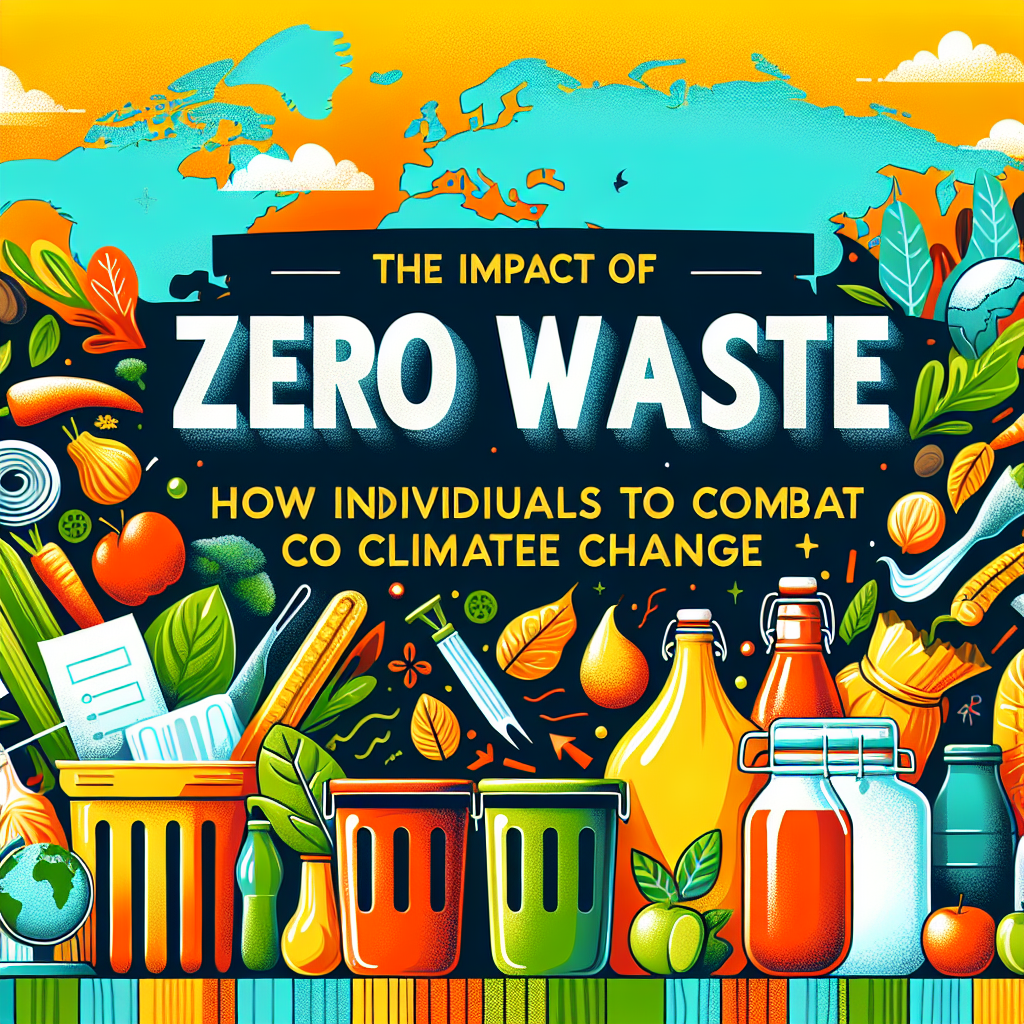In recent years, the conversation around climate change has grown increasingly urgent. As the effects of global warming become more evident, individuals and communities are searching for actionable solutions. Among these, the zero waste movement has gained significant traction as a powerful avenue for individuals to combat climate change.
Understanding Zero Waste
The zero waste philosophy encourages the redesign of resource life cycles so that all products are reused, and none become waste. The aim is a circular economy where materials are continuously recycled, upcycled, or composted instead of being discarded. The movement originated in the 1970s, but it has evolved into a broader lifestyle choice that encompasses minimalism, sustainability, and mindful consumption.
The Environmental Benefits of Going Zero Waste
-
Reduced Greenhouse Gas Emissions: Landfills are significant sources of methane, a potent greenhouse gas. By reducing the amount of waste sent to landfills, zero waste practices minimize methane emissions, directly contributing to the fight against climate change.
-
Conservation of Resources: The production processes of goods consume vast amounts of energy, water, and raw materials. By adopting a zero waste lifestyle, individuals lessen demand for new products, thereby conserving resources and decreasing pollution from manufacturing processes.
-
Encouraging Local Economies: Zero waste often emphasizes local production and consumption. Supporting local businesses reduces the carbon footprint associated with transporting goods long distances, encouraging sustainable economic models that bolster community resilience.
Practical Steps Individuals Can Take
The transition to a zero waste lifestyle may seem daunting, but small, manageable changes can lead to significant impacts. Below are practical steps individuals can take:
1. Mindful Shopping
Before making a purchase, consider whether the item is truly necessary. Opt for products with minimal packaging or those that are reusable. For example, carry cloth bags, use glass containers, and choose bulk items whenever possible.
2. Composting
Composting organic waste prevents it from ending up in landfills, where it decomposes anaerobically and releases methane. Starting a compost bin at home can turn kitchen scraps into nutrient-rich soil, contributing to a healthier ecosystem.
3. DIY Products
Creating homemade household products—such as cleaners, personal care items, or even food—reduces the need for packaged goods and enables individuals to know exactly what they’re using. Many DIY recipes utilize simple, non-toxic ingredients.
4. Educate and Advocate
Sharing knowledge about zero waste practices within communities can create a ripple effect. Consider conducting workshops, joining local environmental groups, or using social media platforms to advocate for sustainable living.
5. Repair, Don’t Replace
Before discarding broken items, explore repair options. Many communities have repair cafes or workshops where individuals can learn to fix their belongings. This practice not only reduces waste but also fosters a culture of sustainability.
The Collective Impact
While individual actions are crucial, they multiply when adopted at a community level. If a significant portion of the community reduces their waste, the positive effects amplify. Community programs, such as zero waste challenges or initiatives to reduce single-use plastics, can inspire collective action.
Overcoming Barriers to Zero Waste
Transitioning to a zero waste lifestyle may present challenges, such as lack of access to bulk stores or limited recycling facilities. To overcome these barriers, communities can:
- Encourage local governments to support infrastructure for recycling and composting.
- Partner with businesses to offer more sustainable options and reduce waste.
- Create public awareness campaigns to educate residents on the benefits and methods of zero waste practices.
Conclusion
The zero waste movement is not just about reducing trash; it signifies a fundamental shift in how we view our relationship with the planet. By embracing this lifestyle, individuals can take significant steps toward curbing climate change, promoting sustainability, and fostering a sense of community responsibility. Together, we can create a cleaner, more sustainable future—one mindful choice at a time.




